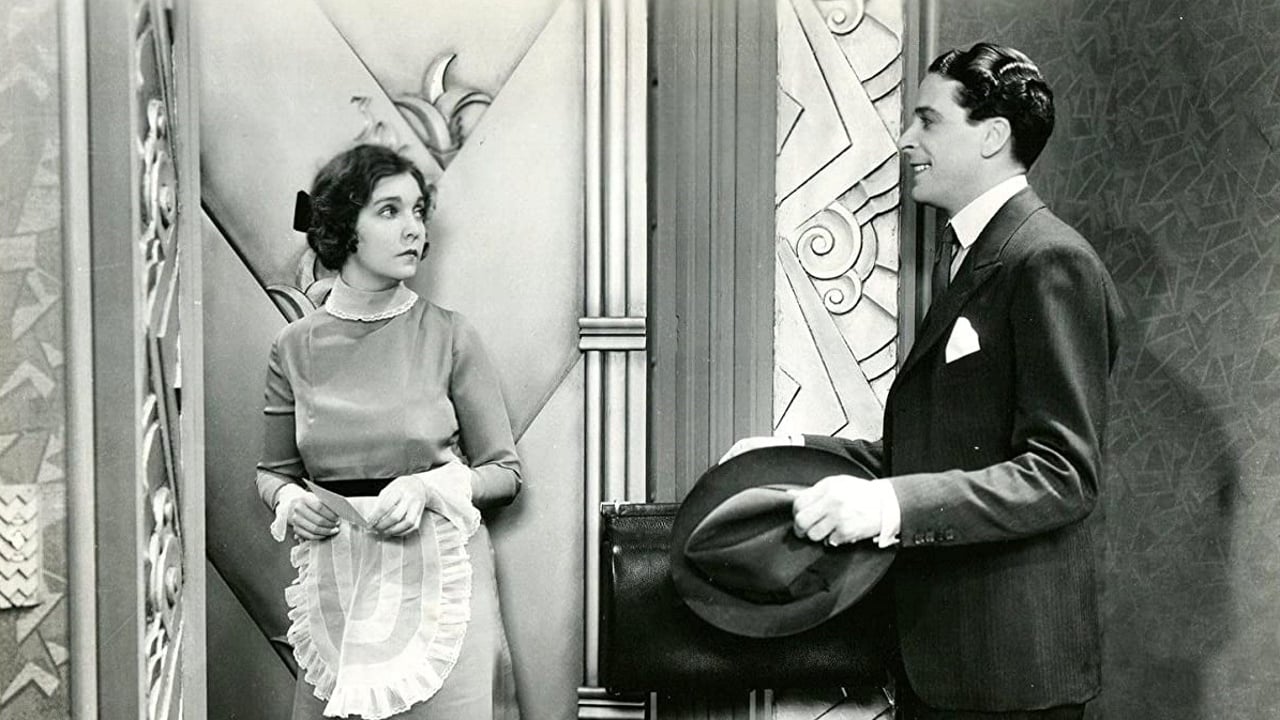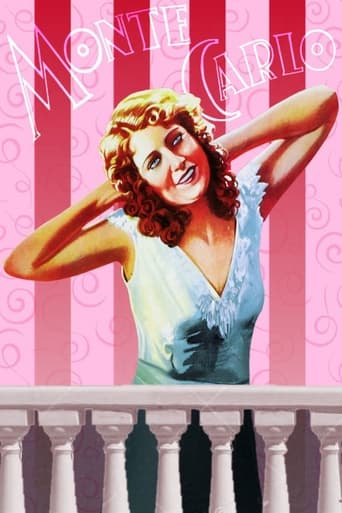

Well Deserved Praise
... View MoreAbsolutely Fantastic
... View MoreThe film creates a perfect balance between action and depth of basic needs, in the midst of an infertile atmosphere.
... View MoreClose shines in drama with strong language, adult themes.
... View MoreIn fact, Monte Carlo is a nice film that left me mostly in a good mood. It does have a few fairly major flaws, starting with Jack Buchanan who is a total charmless wimp of a leading man and his chemistry with Jeanette MacDonald doesn't really convince, Maurice Chevalier would have been a much better fit. The song Trimmin' the Women is forgettable at best and embarrassing at worst, a song that really should have been left on the editing room floor, a shame because there was some clever musical choreography in it. The story also even for a 1930s musical is rather contrived with a few situations stretched to the limits in credibility. And sadly, ZaSu Pitts is wasted and strains for laughs, she's often delightful but her comic talents are just not used very well at all. As ever with an Ernst Lubitsch film Monte Carlo is a lavish-looking film with opulent period detail and attractive cinematography and Lubitsch directs with his usual class and elegant style. The songs, with the exception of one, are lovely and staged in a witty(a couple alternatively intimate) and light as a feather way, the memorable scene being the tear-jerking Beyond the Blue Horizon staged on a moving train. Give Me a Moment Please is very amusing as well and the most story-enhancing of the songs. The dialogue is sweet and funny with some nice interplay between the actors, the supporting performances are solid enough but other than the songs Jeanette MacDonald is the best thing about Monte Carlo. She is effortlessly charming and feisty and her voice while not large is beautiful in tone and shaped with tasteful style and phrasing. All in all, Lubitsch is nowhere near his best here(Heaven Can Wait, the Merry Widow and particularly The Shop Around the Corner are much preferred) but while problematic Monte Carlo is not a bad film at all, lesser Lubitsch but Lubitsch when not on best form is better than most other directors in the same position. 7/10 Bethany Cox
... View MoreIn the 1930s and 40s, the German comedian/director Ernst Lubitsch came to Hollywood and made a succession of wonderful movies--movies that had such artistry that they were said to have 'the Lubitsch touch'. However, despite marvelous films like "The Smiling Lieutenant", "Trouble in Paradise" and "Ninotchka", he did make an occasional dud--as "Monte Carlo" is a very tough film to enjoy. There are many reasons the film fails--though Lubitsch's direction and style is still a plus in this movie--it is lovely to look at and is a pretty movie. But, there are so many problems that mar anyone enjoying it--especially here in the 21st century. The biggest problem is perhaps the singing. While Jeanette MacDonald was a huge star in her day, her songs in this film are just dreadful and there is just too much singing--and not the cute or pleasant singing but warbling that hurts your ears. The other problems are the male leads. Claud Allister is cast as Jeanette's fiancé--but he appears to be a homosexual and the idea of their marriage seems ridiculous. So of course Jeanette breaks the engagement--but the idea of there even being an engagement in the first place makes no sense. As for the main male lead, Jack Buchanan, he simply is a dull looking man who seems like he isn't up to the task of playing a romantic male lead. Mgmax's review compared his looks to Paul Muni (not exactly romantic leading man material) and I would say that this is true--but Buchanan is even less suited for this sort of role. And finally, the whole plot about a penniless lady living above her means and trying to find a way out of her financial difficulties is hard to enjoy--and Jeanette just seems, at times, shallow--particularly when this was made during the Depression. Trials and tribulations of a pampered countess who wants to find a rich husband is a plot who probably found little resonance with the audiences of the day! Overall, while the film has moments, the overall package isn't particularly enjoyable and seems easy to skip. You just wouldn't expect that from one of Lubitsch's American films...but it's true.
... View MoreI have this movie recorded from TV and reading the comment by mgmax I was really perplexed about the fact of the wrongly numbered reels. I don't know if such a thing happened or not but anyway there is nothing baffling in the scene in which Buchanan presents himself to Mc Donald as a hairdresser after having seen her in a preceding scene. This is why he saw her but she didn't see him. I went to have a look to the movie and this is how it happens: when the Count and a friend of him see her going to the casino for the first time he sends his friend to make acquaintance with Jeanette. The friend receives a slap on his face. She touches the humpbacked and goes on her way. The two men then say: why! she's superstitious. So the Count goes after her and tells her to touch his hair if she wants very good luck at the casino. She never turns back and continues going toward the casino's entry door. He follows and goes on speaking, she never answers. Then she enters and closes the door right on his face. He turns back standing near the the door. She puts out an arm and touches the back of the head of the Count then closes the door again. As for the film I agree that Buchanan is not the right actor to interpret the character of the Count, the songs are mostly good but the story is a little cliché.
... View MoreSurprisingly fresh comedy and adult outlooks sparkle in this fun early talkie and musical starring Jeanette MacDonald. It's got a none-too-subtle fetishy undertone to give it a snappy jolt, it's got some unusually naturalistic acting (especially from the pre-Nelson Eddy Miss MacDonald), and it's in glorious black and white. What more could you ask? Well, the supporting cast do tend to be a bunch of stock characters, but it *is* a musical comedy, after all. The climax at the opera has a lovely exchange of wordless acting between MacDonald's Countess and her paramour -- and the whole thing is full of "the Lubitsch touch," from before he had entirely lost his European edge. I recommend it!
... View More